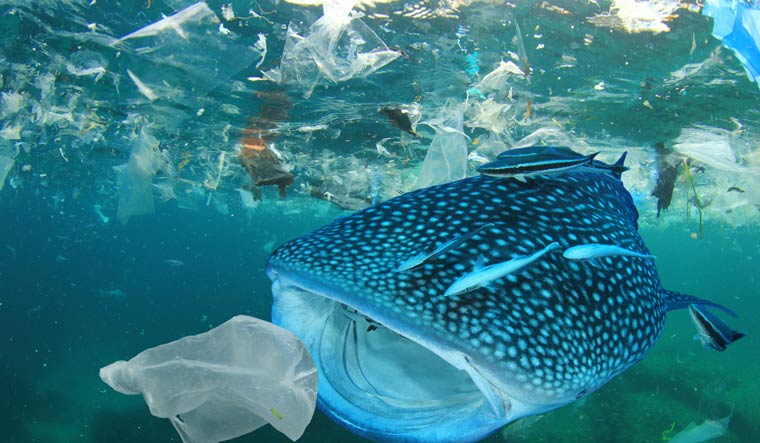
Hundreds of sharks and rays have become tangled in plastic waste in the world's oceans, according to a study.
Researchers from the University of Exeter in the UK scoured existing published studies and Twitter for shark and ray entanglements, and found reports of more than 1,000 entangled individuals.
According to them, the true number is likely to be far higher, as few studies have focussed on plastic entanglement among shark and rays.
The study, published in the journal Endangered Species Research, said such entanglement -- mostly involving lost or discarded fishing gear -- is a "far lesser threat" to sharks and rays than commercial fishing, but the suffering it causes is a major animal welfare concern.
"Due to the threats of direct over-fishing of sharks and rays, and 'bycatch' (accidental catching while fishing for other species), the issue of entanglement has perhaps gone a little under the radar," study's co-author Brendan Godley said.
The researchers found reports of 557 sharks and rays entangled in plastic, spanning 34 species in oceans, including the Atlantic, Pacific and Indian. Almost 60 per cent of these animals were either lesser spotted dogfish, spotted ratfish or spiny dogfish.
On Twitter, they found 74 entanglement reports involving 559 individual sharks and rays from 26 species, including whale sharks, great whites, tiger sharks and basking sharks.
Both data sources suggested "ghost" fishing gear (nets, lines and other equipment lost or abandoned) were by far the most common entangling objects. Other items included strapping bands used in packaging, polythene bags and rubber tyres.
The research identified factors such as habitat, migration and body shape that appear to put certain species more at risk.



No comments:
Post a Comment